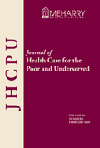 On July 1st, the interest rate on subsidized Stafford loans doubled, from 3.4% to 6.8%. Without quick corrective action from Congress, this will significantly raise the interest rate on loans for as many as five million college students. But what are Stafford Loans? And why should clinicians care?
On July 1st, the interest rate on subsidized Stafford loans doubled, from 3.4% to 6.8%. Without quick corrective action from Congress, this will significantly raise the interest rate on loans for as many as five million college students. But what are Stafford Loans? And why should clinicians care?
What are Stafford Loans?
Stafford loans are a critical part of the financial aid offered by the federal government to college students. There are two kinds of Stafford loans:
- Subsidized Stafford loans are awarded to students with financial need (students for whom the cost of attending school exceeds what their family can afford). The government pays the interest on the loans while the student is in school. There is a limit to how much a student can receive every year, and how much in total. The interest rate for subsidized loans was 3.4%, but after July 1st, is now 6.8%
- With unsubsidized Stafford loans, interest is allowed to build up while they attend school. Until 2009, their interest rate was also 3.4% but was increased to 6.8% after Congress failed to act to reduce them. Unlike subsidized loans, they aren’t limited to low-income students, but also have caps on how much you can borrow. 55% of loans are unsubsidized, while 26% are subsidized (the remaining are other kinds of Federal Loans unaffected by the impending interest rate increase).
Stafford loans are not considered government spending because they are eventually a source of income for the government, thanks to future interest payments on the loans. Higher interest rates mean more income for the government. Last year alone, the government took in $50 billion in profit. That’s not just income, that’s profit. For perspective, last year ExxonMobil earned profits of $44.9 billion, just $300 million short of the world record for a corporation.
$87 Billion in Stafford loans are given out each year, and currently nearly 40% of students receive either one or the other, or both. As the cost of college gets more expensive, and with the continuing threat of cuts to other government sponsored financial aid, interest rate increases could become serious financial burdens on students and graduates. The interest rate increase could mean an additional $1000 in extra debt for graduates for every year of school they attend. Higher Interest rates from government financial aid will be major disincentives for students looking to pursue some form of higher education.
Why should you care?
College loans are an incredible burden on the US economy. There is over $1 Trillion in outstanding student debt, and that number only continues to rise. On average, graduates aged 24-30 contribute 1/3 of their income to debt repayment. And while college loans remain a useful tool for higher education, higher interest rates, rates that would hit the poorest student’s hardest, mean that millions of graduates will struggle even more to pay their loans.
Clinicians with debt are forced to seek higher paying jobs, potentially leaving lower paying jobs unfilled, often the most critical jobs, in clinics and health centers in underserved areas. Additionally clinicians usually have to seek more than just a 4 year education to be certified, and that means even more debt. The median total debt for 2012 medical student grads is $170,000, and that does not include interest incurred while at school. Clinicians who default on their government back loans can be blacklisted by Medicaid and Medicare. With the impending insurance expansion under the ACA, attracting more talented and culturally diverse clinicians will be even more important, and even more difficult if the cost of loans continues to rise. Without action, Congress risks forcing prospective students to make educational decisions based on finances, and not their personal goals, driving away those who wish to pursue lives serving the underserved.
ACU will keep you updated on the latest college loan news, but we also want to hear your thoughts. What should Congress do? How have college loans affected you?
 Follow
Follow




Follow Us!